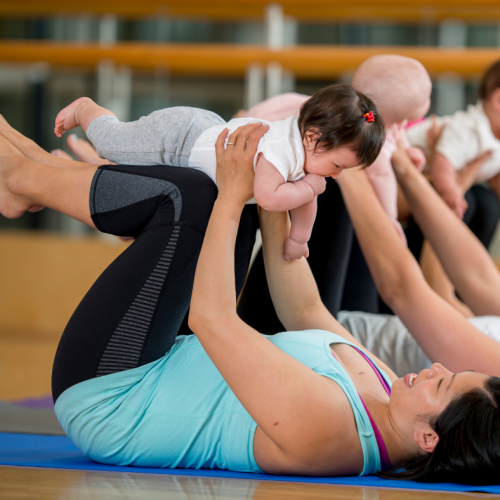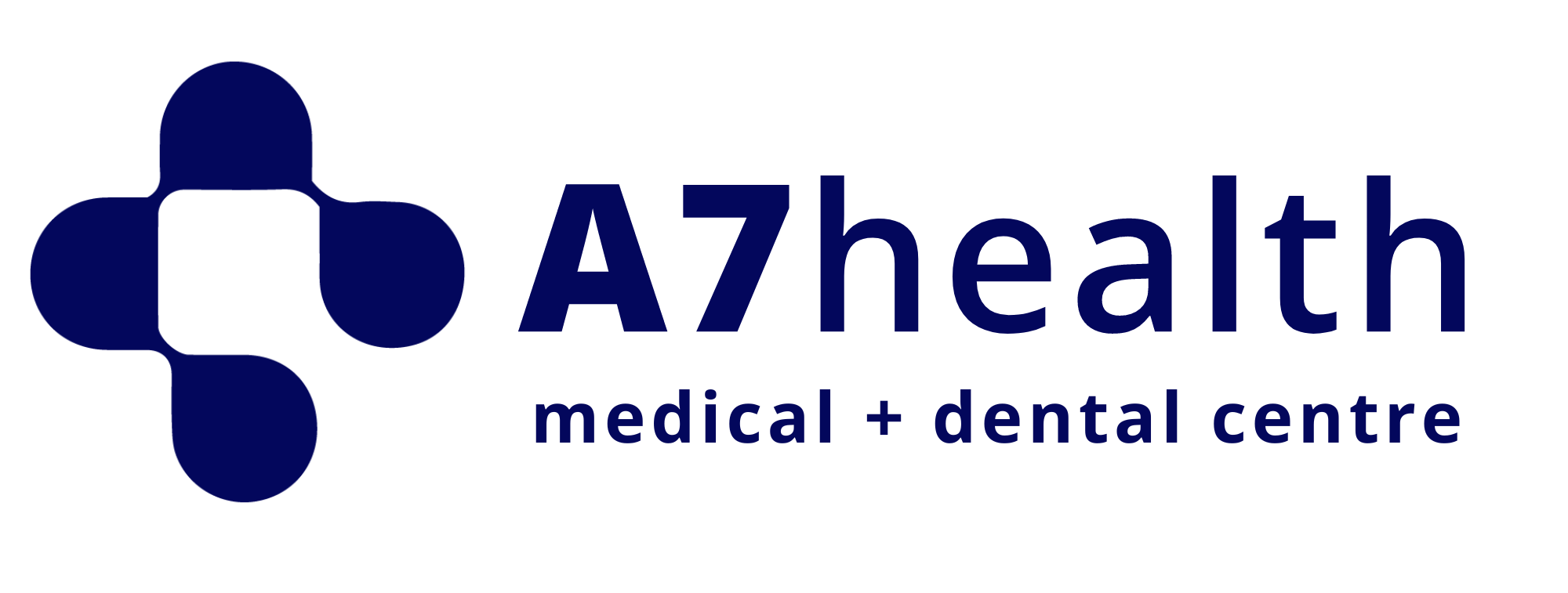Exercise after Pregnancy
After the initial healing period, many mothers may want to know how to safely return to exercise and regain their strength. Although there are many physical changes as ligaments and muscles relax during pregnancy, your core muscles undergo the greatest changes as the abdominal and pelvic floor muscles lengthen to accommodate the growing baby. With a gradual return to exercise and focused core work, you can regain your strength and function.
Before getting started

- Get the all-clear from your doctor – If you had an uncomplicated pregnancy and a routine vaginal delivery, you can usually start exercising a few days after giving birth or as soon as you feel ready. If you had a C-section, an extensive vaginal repair, or a complicated delivery, or if you have pregnancy-related complications such as diastasis recti (abdominal muscles separation), it is important to heal (C-section recovery) and get the all-clear from your doctor before you begin exercising.
- Know your starting point – Your fitness and physical abilities will be affected if you have been inactive before and during your pregnancy. If you start with appropriate exercises, you will minimise your risk of injury and have the best chance of achieving your health, recovery and weight goals. Do not start where you’d like to be, start where you actually are.
- Get help – Biokineticists experienced in training women after childbirth can assess you and provide the support and guidance you need to recover safely.
Benefits of exercise after pregnancy
Regular exercise after pregnancy can:
- Promote weight loss
- Improve cardiovascular fitness
- Strengthen and tone abdominal muscles
- Increase energy level
- Reduce stress and symptoms of postpartum depression
- Promote better sleep
Exercise safely
For most healthy women, 150 minutes per week of moderate-intensity aerobic activity, spread over several days, is recommended after delivery. However, it is important to exercise safely. Follow these guidelines:
- Take time to warm up and cool down
- Start slowly and gradually increase your pace
- Drink plenty of fluids
- Wear a supportive bra and nursing pads if you are breastfeeding in case your breasts leak
- Wear a supportive belly band to provide additional support for your core muscles
- Stop exercising if you feel pain
Activities to try
Start with something low impact and simple — such as a daily walk. If you are looking for camaraderie, join the A7 Health postpartum exercise classes.
Some specific exercises that your biokineticist will do in class and that you can try at home later are:
Pelvic tilt – Try the pelvic tilt a few times a day to strengthen your abdominal muscles. Lie on your back on the floor with your knees bent. Flatten your back against the floor by tightening your abdominal muscles and bending your pelvis up slightly. Hold for up to 10 seconds. Repeat five times and work up to 10 to 20 repetitions.
Kegel exercise – Use this exercise to tone your pelvic floor muscles, which support the uterus, bladder, small intestine and rectum. Contract your pelvic floor muscles, as if you’re attempting to stop urinating midstream. Hold for up to 10 seconds and release, relaxing for 10 seconds between contractions.
Exercise and breastfeeding
Moderate postpartum exercise is not thought to affect the quantity or quality of breast milk or the growth of your baby. If you are breastfeeding, it is important to drink enough fluids. Some research suggests that intense exercise can cause lactic acid to build up in breast milk and cause a sour taste that your baby may not like, but this is highly unlikely.
A7 Health exercise after pregnancy services:
Join an exercise class/session (with a Biokineticist)
Exercise, has many benefits such as relief of back and pelvic pain, faster weight loss, and reduced stress among others. Stretching can help relieve sore muscles. Join an exercise class led by an A7 Health Biokineticist who will teach you exercises that will strengthen and relax muscles and help you to reduce the likelihood of pain after pregnancy, boost your wellbeing and get your back to exercise in a safe way. Exercises will also help you with recovery after you give birth.
